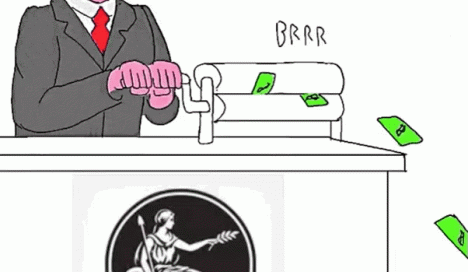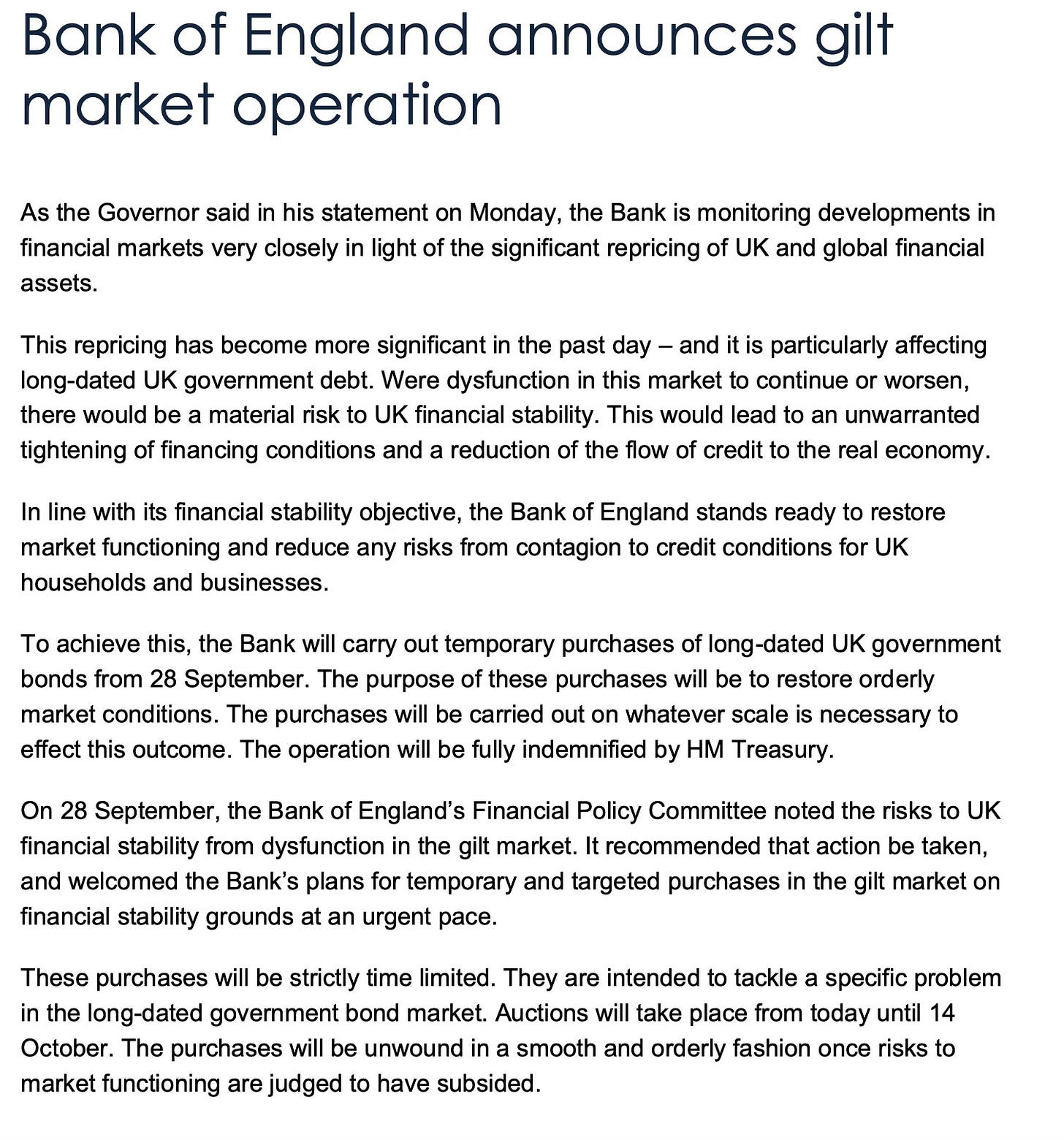It seems like every day brings a new, once in a lifetime event!
Last Friday, the new Chancellor, Kwasi Kwarteng, announced a mini-budget, full of tax cuts (the largest in 50 years and disproportionately for the rich) and scrapped the bankers’ bonuses cap. Unfortunately, for Kwasi he forgot to make any sort of effort to make the books balance. He would announce in a few months time his plans to make the numbers add up. From the outside, it seemed like his plan was to borrow even more money at ever increasing rates and cross his fingers that the UK experiences some decent growth.
Most saw this as a massive gamble and the pound began crashing. The markets were losing confidence in the new government. However, whilst linked to the budget, this was just the straw that broke the camel’s back. The pound had been in freefall since June 2021 and even that was part of a 50 year+ downward trend. The Euro, Australian dollar and many other currencies had been following the same pattern over the last year, as the US dollar strengthened.
Then, yesterday, the IMF decided to step in, treating the UK as if it was a third world, emerging economy. In a stern telling off the IMF said that “we do not recommend large and untargeted fiscal packages at this juncture, as it is important that fiscal policy does not work at cross purposes to monetary policy”. Whilst I didn’t agree with a lot of the mini-budget, it is nice to have it re-affirmed who our actual masters are. I’m glad Brexit returned our sovereignty.
Oddly, the IMF criticised the budget because “the nature of UK measures will likely increase inequality”. Whilst I agree, I didn’t think that was the remit of the IMF. Surely, if it is to step into a country’s affairs, it is because things don’t work fiscally, not because of the greater good.
In what sounded like a threat, the IMF warned “we are closely monitoring recent economic developments in the UK and are engaged with the authorities”. It encouraged the UK to “re-evaluate” its economic policy. What they really meant is that there is international concern that a UK crisis will set off a global panic.
Moody’s rating agency then warned that the UK’s new fiscal policy is “credit negative”.
Suddenly, I’m starting to like the new budget, even if I don’t agree with it. If it is annoying the globalist agenda, it must be doing something right! It would have been great if the IMF had given such excellent advice two years ago when the world ramped up the money printing and got us into the mess we are in now.
Then, within the last hour, the Bank of England (BoE) have made an extraordinary intervention.
The BoE will carry out temporary purchases of government bonds on whatever scale is necessary to effect the outcome. It will also pause its quantitative tightening programme for a month.
So, the BoE is buying more government debt when last week it said it was going to sell government bonds, what could go wrong? But apparently there was serious concern that pension funds could just disappear overnight so something had to be done “to restore orderly market conditions”.
It seems money printing is back on the table again. And as we all know, what’s the best way to deal with inflation? That’s right, print more money and create more inflation.
How long before the Fed capitulates and turns on their printing presses again? How long will this intervention last this time. The 2008 intervention lasted about 10 years. The 2020 intervention lasted a couple of years. This crisis? A few months, weeks?
And in other news…German security agencies say that it is unlikely that Nord Stream 1 will ever be usable again.







Just love this article. Every bit of it. Captures exactly how I feel about the whole thing. Thank you
About Nordstream: probably it was the US trying to provoke a Russian counter-attack. Then the administration would get a nice midterm popularity boost, like Bush after 9/11. Of course there are also other motives.